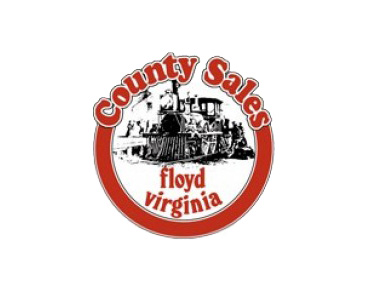
 David Freeman has received many plaudits, some given on a personal level and some, like the induction into IBMA’s Bluegrass Music Hall of Fame (in 2002), given, if not with some razzamatazz, with a greater public awareness.
David Freeman has received many plaudits, some given on a personal level and some, like the induction into IBMA’s Bluegrass Music Hall of Fame (in 2002), given, if not with some razzamatazz, with a greater public awareness.
We can’t allow this year (2015) to pass without some recognition of the fact that Freeman has been servicing the bluegrass music world, by way of County Sales, since 1965.
Born on May 22, 1939, in New York, Freeman fell in love with Country and Blues music at the age of 14 years. He followed up that interest by attending as many near-by shows featuring southern musicians as he could. At the same time he started collecting recordings of their music. In his late teens, this expanded into exploratory trips into the South in search of records, listening to the radio and attending concerts and fiddle conventions. This was funded by his income from a job as a travelling mail-man working on the railways.
The record collecting evolved into the selling of records to friends and acquaintances. Initially, a room in his father’s art business premises on East 37th Street was used for storage purposes. Later, as the informal trading expanded into a mail-order business, he used a part of a warehouse in Weehawken, New Jersey, that happened to have as a fellow occupier the late Bill Vernon.
By this time, Freeman had already released his first record, an LP of re-issue material, A Collection of Mountain Fiddle Music (County 501). Freeman thought that the word “county” would serve as a good representation of his favourite music and from whence it came.
Such was the genesis of Freeman’s closely-linked businesses.
In a 2008 interview he revealed that County Sales began as full-time business due to an unexpected twist of fate …..
“….. by taking over supplying American country LPs to European customers for a British country music magazine (Country News & Views) that had such a service but then lost its USA supplier in Nashville. So we took over, sending parcels to the British Isles and other European countries, while building up our own business in the USA (mostly from classified ads in the Nashville Music City News newspaper, at first). We also got a lot of customers by word of mouth and we had a small but solid group of collectors who bid on my auction lists‚ many of them became customers of County Sales when they found they could get current LPs from us at discount prices.”
At the time there weren’t enough new releases (vinyl LPs) to fill up even two or three pages of space in his Newsletter that was issued every two months.
In an earlier moment of reflection he couldn’t ….
“… recall the existence of any significant books about the music at the time, and there were no such things as DVDs or VHS tapes. We scrambled to find news about Fiddlers’ Conventions and even word of future LP releases‚ there were probably not more than 25 or 30 bluegrass LPs on the market then.”
Thankfully, for us and him, circumstances changed. 1965 was also the year of the first multi-day bluegrass festival.
As the festival movement began there were places where bluegrass music lovers could congregate and information, like that relating to County Sales, could be shared.
Freeman recognised the value of those festivals …
“…. we owe special thanks to all those festival promoters who have insisted on keeping their events clean and family oriented …
[ and ] to the early pioneers who brought respect to the music through their writing and promoting: people like the late Ralph Rinzler, Bill Vernon, Charles Wolfe, Mike Seeger and Lance Leroy, and those still involved today like Bill Malone and Neil Rosenberg.”
Whereas the original market places were in the big cities, by 1975 customers were predominantly residents of rural regions and small-town areas.
According to Freeman ……
“Some of the first really big sellers we had were the ‘budget’ LPs that started coming out on the Camden and Harmony labels (Carter Family, Bill Monroe, Flatt & Scruggs, Molly O’Day etc). As I recall, we bought these for $1.25 and sold them for $1.75 each. They were great value and great music. Some of the early full price records that we sold really well in our first couple of years were the Decca Knee Deep In Bluegrass and instrumentals LPs, along with the Decca Uncle Dave Macon and Carter Family LPs.”
Through the years the biggest sellers include albums by Rhonda Vincent, Del McCoury, IIIrd Tyme Out and Alison Krauss.
From the older generation County Sales has sold more Stanley Brothers, Ralph Stanley, Flatt & Scruggs and Bill Monroe records than anything else, followed by those by the Country Gentlemen and Seldom Scene.
“And we have sold literally thousands of old time CDs by Charlie Poole, Gid Tanner and Uncle Dave Macon.”
The business expanded due to several reasons, all attractive to customers; a speedy service, discount prices, knowledgeable advice and a wide-ranging stock – that went on to include books and videos (later DVDs) as well as LPs / CDs – made County Sales the premier mail-order dealer for old time and bluegrass music world-wide.
In March 1974 Freeman moved his family and business to a farmhouse in Floyd County, Virginia, an area few in people but with fiddles and banjos a-plenty.
Freeman adapted to the digital age quite readily. In 1983 he bought his first computer; it cost over $4,000.00 and it was probably less than one fiftieth as powerful and as efficient as those that we have nowadays. From October 1996 work began on a website for County Sales and it went live in March 1997. Prior to that, employee Gary B. Reid had started cataloging some of the recordings, separately itemizing old time, bluegrass, Gospel, instrumental, fiddle etc recordings and these became the models for the web site.
Now, 50 years on – the County Sales Newsletter has now run up to 338 editions – County Sales continues to have the world’s largest selection of bluegrass and Old-Time music recordings.
The business has David Freeman’s DNA all the way through, as do the other enterprises with which Freeman has had dealings; County Records, which he continues to own; Record Depot, a wholesale distribution company that he founded in 1977 in Roanoke, Virginia, and which he sold to former employee Chet Rhodes in 2003; Sugar Hill Records, which Freeman helped working colleague and graphic artist Barry Poss to found in 1978, and to whom Freeman sold his interest in 1980; Rebel Records, which he acquired from Richard Freeland in 1980 and he continues to own; and Markyle Music, a music publishing company that he set up in 1984 and which he continues to own.
Gary Reid notes Freeman’s strengths as …..
“…….. an economical manner, neatness, organization and attention to detail.”
Freeman was inducted into the International Bluegrass Music Hall of Fame in 2002.







